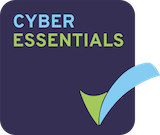Preparing to Work in Adult Social Care Distance Learning Level 2
Area
Adult Learning ⓘThis course is also available under
Distance Learning
Subject
Counselling & Personal Development
Health & Social Care
Campus
Cost
-
Select date to apply
Add to Shortlist
Course Overview
The duration of the course is11-13 weeks.
This qualification aims to introduce knowledge around communication, equality, diversity and inclusion, personal development, role of the social care worker, handling information, health and safety, safeguarding, duty of care and person-centred approaches.
As part of this course you will study nine mandatory units:
UNIT 1 – Principles of communication in adult social care settings
- Section 1 Understand why effective communication is important in adult social care settings
- Section 2 Understand how to meet the communication and language needs, wishes and preferences of an individual
- Section 3 Understand how to overcome barriers to communication
- Section 4 Understand principles and practices relating to confidentiality
UNIT 2 – Principles of personal development in adult social care settings
- Section 1 Understand how to reflect on practice in adult social care
- Section 2 Understandthe importance of feedback inimproving own practice
- Section 3 Understand how a personal development plan can contribute to own learning and development
UNIT 3 – Principles of diversity, equality and inclusion in adult social care settings
- Section 1 Understand the importance of diversity, equality and inclusion
- Section 2 Understand how to work in an inclusive way
- Section 3 Understand how to raise awareness of diversity, equality and inclusion
UNIT 4 – Principles of safeguarding and protection in health and social care
- Section 1 Know how to recognise signs of abuse
- Section 2 Know how to respond to suspected or alleged abuse
- Section 3 Understand the national and local context of safe guarding and protection from abuse
- Section 4 Understand ways to reduce the likelihood of abuse
- Section 5 Know how to recognise and report unsafe practices
UNIT 5 Principles for implementing duty of care in health, social care or children’s and young people’s settings
- Section 1 Understand how duty of care contributes to safe practice
- Section 2 Know how to address conflicts or dilemmas that may arise between an individual’s rights and the duty of care
- Section 3 Know how to respond to complaints
UNIT 6 – Understand the role of the social care worker
- Section 1 Understand working relationships in social care settings
- Section 2 Understand the importance of working in ways that are agreed with the employer
- Section 3 Understand the importance of working in partnership with others
UNIT 7 – Understand person-centred approaches in adult social care settings
- Section 1 Understandperson-centredapproachesinadultsocialcare
- Section 2 Understandhow to implement a person-centred approach in adult social care setting
- Section 3 Understand the importance of establishing consent when providing care or support
- Section 4 Understand how to implement and promote active participation
- Section 5 Understand how to support an individual’s right to make choices
- Section 6 Understand how to promote an individual’s well-being
- Section 7 Understand the role of risk assessment in enabling a person-centred approach
UNIT 8 – Understand health and safety in social care settings
- Section 1 Understand the diffierent responsibilities relating to health and safety in social care setting
- Section 2 Understand risk assessments and their importance in relation to health and safety
- Section 3 Understand procedures for responding to accidents and sudden illness
- Section 4 Understand how to reduce the spread of infection
- Section 5 Understand how to move and hanle equipment and other objects safely
- Section 6 Understand the principles of assisting and moving an individual
- Section 7 Understand how to handle hazardous substances
- Section 8 Understand how to promote environmental safety procedures in the social care setting
- Section 9 Understand how to manage stress
- Section 10 Understand procedures regarding handling medication
- Section 11 Understand how to handle and store food safely
UNIT 9 – Understand how to handle informatinin social care settings
- Section 1 Understand requirements for handling information in social care settings
- Section 2 Understand good practice in handling informationin social care setting
- Section 3 Understand how to support others to handle information
Assessment Methods
Assessments are due at the end of each unit. Your tutor will assess your work and build up your portfolio of evidence of learning. A certificate will be awarded on satisfactory submission of evidence of learning for the units studied.

Course Summary
| Course Title | Preparing to Work in Adult Social Care Distance Learning Level 2 |
|---|---|
| Entry Requirements |
For Eligibility |
| Attendance Requirements | As a Distance Learning course, there is no need to attend College. For further information or advice, please contact the Distance Learning team:01823 366612 distancelearningteam@btc.ac.uk |
| Campus | |
| Start Date |
Spotlight

I found the entire experience of studying as an adult learner really rewarding, and decided to further my knowledge by progressing my studies to the next level. I'm continually learning new skills and it's really helping my personal and professional development.
Additional Information
Add to Shortlist
© 2024 Bridgwater & Taunton College, Bath Road, Bridgwater, Somerset, TA6 4PZ, United Kingdom | Terms / Privacy / Cookies | Accessibility Made by Wave
How we use cookies: This website uses cookies so that we can provide you with the best user experience. To read more about the cookies we use, read our Cookies Policy.



